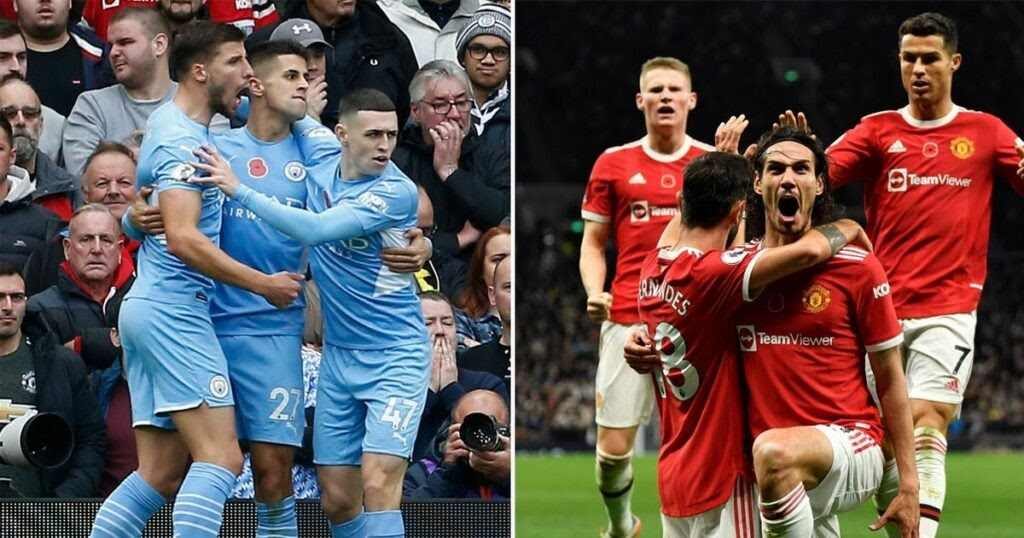
During the 1960s, plans were proposed for fierce rivals Manchester United and Manchester City to merge in the Premier League and form a new super club.
The plans were reportedly discussed more than once, with the rivalry between the two teams more friendly 60 years ago than it is now.
Ultimately, though, the merger never happened after United gave it little consideration and many at City opposed it after plans were first proposed by Man City vice-chairman Frank Johnson in 1964.
- Loftus-cheek names Chelsea’s best player so far this season
- Man Utd board want Zinedine Zidane to replace Solskjaer
- Ronaldo’s key role in persuading Zidane to accept Man Utd job
But, it will likely always be the closest that the Manchester clubs have come to merging to form a new super team.
In 1964, City were a midtable Second Division team, while the Red devils had just finished as runner-up in the top flight. While the pair were rivals on the pitch, outside of their meetings their relationship was friendly.
City had previously allowed United to use their Maine Road stadium for home games while Old Trafford was re-built after the Second World War as well as for European matches before floodlights were installed at the ground.
With City seen to be in the lowest point in their history at that time, Johnson had the idea for them to merge with United to give the city of Manchester one big club.
In 2013, football historian Gary James revealed the merger plans and told the Manchester Evening News that: “The idea was killed by both clubs before it ever became public.
“I spoke to Eric Alexander whose dad Albert was chairman at the time, and he said Frank Johnson, who came up with the idea, often came up with crazy ideas.
“Another of his plans was to make the entire league regionalised into north and south.
“But City were at a real low in their history at the time. In terms of league position, it wasn’t as bad as 1998-99, but in terms of general morale, atmosphere and support it was by far the lowest point in the club’s history.
“In the late Nineties, we still had over 30,000 going to games, and that meant the club still had a high profile. In 1964-65 we were in the second division, support had dropped to a low of less than 15,000, and general interest in the club had also dropped.
“I always believed in the Nineties that City would come back, because of the strength of the support, but in those days in the Sixties a lot of people didn’t feel that way.
“At that time, a lot of the ‘town’ clubs like Bolton, Burnley and Blackpool, who had all been major powers, began to struggle, and clubs like Accrington Stanley and Bradford Park Avenue were dying.
“There was a feeling that this could happen to any club. In fact, all it needed at City was a plan and a vision, and to bring in the right manager.”
